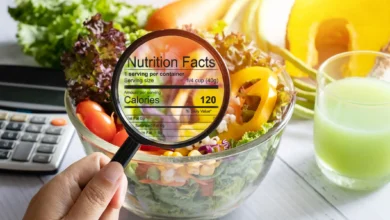Intelligent Nutrition: A Comprehensive Guide to Deciphering Nutritional Information

In the era of information overload, understanding the intricacies of nutritional labels can be a powerful tool in making informed food choices. Navigating the world of nutrition involves more than just counting calories—it’s about deciphering the wealth of information provided on food packaging. This comprehensive guide aims to empower you with the knowledge needed to make intelligent nutrition choices for a healthier lifestyle.
1. *Understanding Serving Sizes:*
- Pay attention to serving sizes to accurately assess the nutritional content of the food.
- Many packages contain multiple servings, so be mindful of portion sizes to avoid unintentional overconsumption.
2. *Decode the Ingredients List:*
- Familiarize yourself with the ingredients list to understand what goes into your food.
- Ingredients are listed in descending order by weight, so the first few ingredients have the highest quantity.
3. *Nutrient Breakdown:*
- Focus on the core nutrients—protein, carbohydrates, fats, vitamins, and minerals.
- Be aware of both the quantity and the quality of these nutrients to make well-rounded food choices.
4. *Distinguish Between Types of Fats:*
- Differentiate between saturated, unsaturated, and trans fats.
- Opt for foods rich in unsaturated fats, found in sources like avocados, nuts, and olive oil, while limiting saturated and trans fats.
5. *Mindful Caloric Intake:*
- Consider the caloric content in relation to your daily energy needs.
- Be mindful of balancing caloric intake with physical activity for weight management.
6. *Assess Added Sugars:*
- Identify added sugars on the nutritional label, distinct from naturally occurring sugars.
- Excessive added sugars contribute to various health issues, so moderation is key.
7. *Prioritize Protein Quality:*
- Look for sources of high-quality protein, such as lean meats, fish, beans, and legumes.
- Adequate protein intake is crucial for muscle health and overall well-being.
8. *Explore Fiber Content:*
- Aim for foods rich in dietary fiber, found in fruits, vegetables, and whole grains.
- Fiber supports digestive health and helps maintain a feeling of fullness.
9. *Deciphering % Daily Value:*
- Use the Percent Daily Value (%DV) to gauge how a serving of food fits into your overall daily nutrition.
- A %DV of 5% or less is considered low, while 20% or more is considered high.
10. *Evaluate Micronutrients:*
- Consider the presence of essential vitamins and minerals.
- Ensure a diverse diet to meet your body’s requirements for optimal health.
11. *Watch Out for Sodium Levels:*
- Monitor sodium content, especially if you have specific health concerns like hypertension.
- Opt for lower-sodium alternatives to promote heart health.
12. *Consider Nutrient Density:*
- Embrace nutrient-dense foods that offer a high concentration of vitamins and minerals relative to their calorie content.
- Vegetables, fruits, and whole grains are excellent examples of nutrient-dense choices.
13. *Beware of Misleading Marketing Terms:*
- Be cautious with terms like “low-fat,” “sugar-free,” or “all-natural,” as they can sometimes be misleading.
- Always cross-reference such claims with the actual nutritional information.
14. *Stay Hydrated:*
- Remember to factor in beverages when assessing your overall nutritional intake.
- Water is the best choice for hydration, free of calories and essential for various bodily functions.
15. *Consult with a Nutrition Professional:*
- When in doubt, seek advice from a registered dietitian or nutritionist.
- A professional can provide personalized guidance based on your specific health goals and dietary needs.
Conclusion:
intelligent nutrition is about more than just reading labels—it’s a holistic approach to understanding the impact of food on your body. By decoding nutritional information and making informed choices, you empower yourself to cultivate a balanced and nourishing diet. Remember, it’s not about perfection but progress, so take small steps towards a healthier, more informed relationship with the food you consume. Your body will thank you for it.




